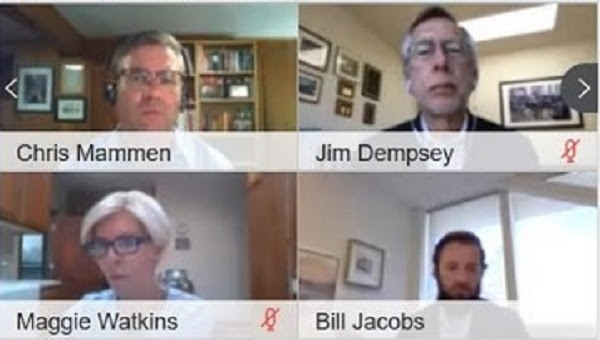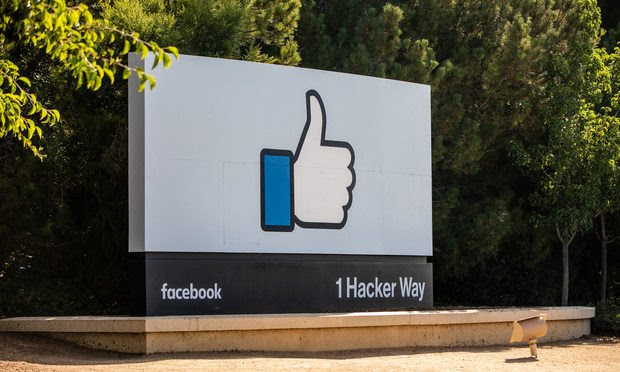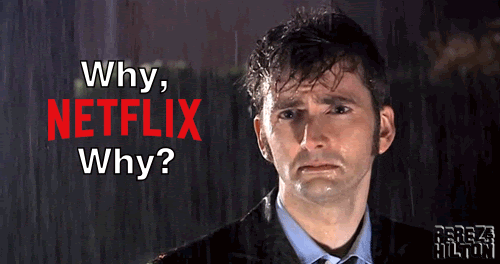What's Next: IBM Springs a Surprise on Zillow—and Judge Zilly + The AI-as-Inventors Conversation Is Going Mainstream
IBM brings a new patent suit against Zillow, and Judge Thomas Zilly doesn't sound pleased.
July 24, 2020 at 04:21 PM
10 minute read
Welcome to Skilled in the Art. I'm Law.com IP reporter Scott Graham. Here's what's cracking this week:
• IBM brings a new patent suit against Zillow. Judge Thomas Zilly doesn't sound pleased.
• AI as inventors is starting to go mainstream.
• Facebook chips another piece off of BlackBerry's patent infringement suit.
• Two small firms pick IP fights with Netflix.
As always you can email me your feedback and follow me on Twitter.
 (Photo illustration: Jason Doiy)
(Photo illustration: Jason Doiy)
IBM Springs Surprise on Zillow, and Judge Zilly
IBM hasn't gotten very far yet in its patent litigation against Zillow. Ten months after Big Blue asserted seven patents covering a variety of technologies, the primary development is that U.S. District Judge Josephine Staton of Southern California transferred the case to the Western District of Washington. Though not before U.S. Magistrate Judge John Early scolded IBM for its "'Ready—Fire—Aim' approach to discovery."
In Seattle, Zillow has complained to U.S. District Judge Thomas Zilly that IBM has submitted 25 infringement contention charts, several of them exceeding 200 pages. IBM says that's on Zillow—without more meaningful discovery, it can't be more specific. Judge Zilly has raised the possibility of bifurcating discovery, claim construction, motion practice, and/or trial between Zillow's consumer and business products, and/or between liability and damages, all with the goal of simplifying the case. Zillow thinks that's a great idea, and has proposed having a "Section 101 day" to get things started.
But IBM—which it should be noted won an $83 million verdict against Groupon based in part on two of the same patents—has decided it's time for more patent assertion, not less.
On Wednesday it filed a brand new infringement suit against Zillow, asserting five more patents. They cover "a novel iconic GUI," methods for using contextual information to rank search results, and methods for stacking of portlets in portal pages.
"This lawsuit is the result of Zillow's decision to escalate its behavior by willfully infringing five additional patents," IBM, represented by Desmarais and Harrigan Leyh Farmer & Thomsen, alleges in the suit.
The company says it provided detailed evidence of the infringement to Zillow in writing last fall, but Zillow dismissed it out of hand as a "distraction" from the first lawsuit.
During a virtual status conference Thursday, Judge Zilly said he was "quite surprised, even a little shocked" that IBM would file the new suit, without advance notice, while the lawyers were trying to make the first case more manageable.
Desmarais partner Karim Oussayef, representing IBM, said the new suit is "really meant as a placeholder" to ensure that the additional patents don't expire, and that IBM wouldn't object to staying it while the first case gets hashed out. He stressed that IBM needs Zillow source code or technical documents to narrow its infringement contentions, but that Zillow has unreasonably insisted that IBM first do the narrowing.
Susman Godfrey partner Ian Crosby and associate Katherine Peaslee argued for Zillow that it shouldn't have to provide any source code in the first suit until IBM files infringement contentions in the second, a position Zilly said "seems to have some merit."
Zilly said he understands the "chicken and egg" nature of the discovery standoff, but added that the problem seems partly "IBM's doing, because you waited until yesterday to file the new case with five new patents. And presumably IBM has a boatload of patents. We could play this out again in six months or a year with you filing another case against Zillow."
Oussayef assured Zilly that if the parties can deal with the first case expeditiously, "that will drive potential resolution, one way or another."
Zilly ordered each side to file 10-page briefs on discovery and whether IBM should be required to file additional infringement contentions.
SPONSORED BY ALM
Announcing Two Incredible Keynote Speakers for the Women, Influence & Power in Law Conference
WIPL is known for having some of the most engaging and energizing keynote speakers attend to share their thoughts, experiences, war stories and tips on effective leadership. And this year is no exception. This year, we are grateful to welcome two remarkable women come and inspire us: Tina Tchen, the President and CEO of the "Times Up" Legal Defense Fund and Paula Boggs, Founder of Boggs Media LLC and Former Executive Vice President, General Counsel and Secretary, Law and Corporate Affairs at Starbucks from 2002-2012. READ MORE

If AI Can Invent, Can It Also Be Deposed?
The USPTO and its counterparts in Europe and the UK have turned down patent applications from DABUS, an artificial intelligence system created by Stephen Thaler. But Thaler and his colleagues on The Artificial Inventor Project are definitely advancing the conversation about AI as inventors.
On Wednesday, Womble Bond Dickinson and the Berkeley Center for Law and Technology co-sponsored a webinar on the subject, and two of the panelists sounded as if they're already there. "This is just going to be a matter of time when the law is changed to allow AIs to be inventors," Womble partner Brent Babcock said. "The more human they become, the more human they appear, the more likely a legislature will accept the notion that an AI is actually what the Constitution calls an inventor."
Womble associate Bill Jacobs said people use computers every day to help conceive inventions, and it's not that far of a stretch to imagine DABUS and similar technologies doing so on their own.
That said, the lawyers acknowledged that changing the law to acknowledge machines as inventors would come with many challenges. "As a PTAB guy, I'm always thinking, 'OK, how do you prove who invented what?'" Babcock said. That's usually done via depositions and declarations. "I don't think an AI has to be able to sit for a deposition" to be an inventor, Babcock said. But the law would probably have to be changed to provide that a surrogate such as a programmer could play that role.
Panelist Yeen Tham, IP policy counsel at IBM, said that at some level, there still has to be human involvement for invention to occur. "If AI came up with the next safety feature for a self-driving vehicle, or even better, AI comes up with a vaccine for the coronavirus, you would really want to at least have human scientists validate that the solutions are fail-proof" before marketing them to the public, she said.
There are "so many other questions we really need to answer, so many other considerations … before we say we need to change the laws," she said.
As The Artificial Intelligence Project's Ryan Abbott says, there's no time like the present to have that debate.
Womble partner Chris Mammen moderated Wednesday's discussion, with Berkeley Center Executive Director Jim Dempsey introducing the topic.

Another BlackBerry Patent Goes to Section 101 Heaven
BlackBerry's headline-making 2018 patent infringement suit against Facebook and other social media companies keeps getting whittled away. Last year, U.S. District Judge George Wu invalidated five of BlackBerry's asserted patents. He later stayed the case for three more after the Patent Trial and Appeal Board launched IPRs, with final decisions expected next year.
Now Wu has found the asserted claims from the last remaining patent ineligible. U.S. Patent 8,429,236 describes a mobile communications device with "a mode selector configured to determine whether a recipient application is actively processing status updates" and a message generator that takes that status into account before sending messages.
Facebook, which is represented by Cooley, said BlackBerry was trying to claim the abstract idea of "Don't talk when no one is listening," or, more colloquially, "Don't waste your breath."
Wu mostly agreed. "The claims focus on a result (choosing a transmission mode based on information about a recipient), with no technological limitations on the hardware or software components (the "mode selector" and "message generator") that must achieve it," he wrote.
BlackBerry had argued that Wu "generalized away" very specific claim limitations.
Cooley's team features partners Heidi Keefe, Mark Weinstein, Matthew Brigham and Michael Rhodes. BlackBerry is represented by Quinn Emanuel Urquhart & Sullivan.

Who Got the Work – Suing Netflix Edition
A lot of us have spent time during the COVID-19 pandemic watching Netflix. Others have been busy suing it.
Actor-writer Jeff Kennedy and his LLC is accusing the entertainment giant and others of incorporating much of his screenplay "Totem" into its TV series "Stranger Things." Irish Rover Entertainment v. Sims alleges that Kennedy worked with a development company that subcontracted with concept artist Aaron Sims to work on storyboards, visual effects and computer-generated characters. Sims, Kennedy and the development company eventually parted ways, with Sims going on to collaborate instead with producers Matt and Ross Duffer on various projects, including "Stranger Things."
Kennedy alleges that "Stranger Things" borrows "Totem" themes—including a character whose ability to see an alternate supernatural plane is perceived as mental illness—as well as its concept art. Netflix has told The Wrap that Kennedy has been "peddling these far-fetched conspiracy theories for years," and that he's just one of many people who've wrongly tried to claim credit for 'Stranger Things.'"
Boren, Osher & Luftman partner Jeremy Osher and senior associate Saba Zafar represent Irish Rover Entertainment. No appearances yet for Netfix.
Meanwhile, Hollywood Weekly and its publisher Prather Jackson are suing Netflix and others, alleging that the magazine coined the name "Tiger King" for zookeeper Joe Exotic, which Netflix used in the title of its documentary "Tiger King: Murder, Mayhem and Madness." (Good luck with this claim: If clever headlines could be trademarked, there'd be loads of retired copy editors living in Hawaii.)
Maybe packing slightly more punch is the allegation that Netflix displayed copies of Hollywood Weekly in the documentary without permission. Hollywood Weekly claims to have invested hundreds of thousands and 20 years in developing a wholesome, "no gossip" brand. After Netflix started distributing its "tawdry television program," magazine advertisers "wanted to cancel due to the confusion."
Beverly Hills solo Michael Frank and Matthew Schwartz of Marietta, Georgia's Schwartz Law Center represent Jackson and Hollywood Weekly.
That's all from Skilled in the Art this week. I'll be on hiatus next week, but I'll see you all again on August 7.
This content has been archived. It is available through our partners, LexisNexis® and Bloomberg Law.
To view this content, please continue to their sites.
Not a Lexis Subscriber?
Subscribe Now
Not a Bloomberg Law Subscriber?
Subscribe Now
NOT FOR REPRINT
© 2025 ALM Global, LLC, All Rights Reserved. Request academic re-use from www.copyright.com. All other uses, submit a request to [email protected]. For more information visit Asset & Logo Licensing.
You Might Like
View All
Skilled in the Art With Scott Graham: I'm So Glad We Had This Time Together

Design Patent Appeal Splinters Federal Circuit Panel + Susman Scores $163M Jury Verdict + Finnegan Protects Under Armour's House
Law Firms Mentioned
Trending Stories
- 1ACC CLO Survey Waves Warning Flags for Boards
- 2States Accuse Trump of Thwarting Court's Funding Restoration Order
- 3Microsoft Becomes Latest Tech Company to Face Claims of Stealing Marketing Commissions From Influencers
- 4Coral Gables Attorney Busted for Stalking Lawyer
- 5Trump's DOJ Delays Releasing Jan. 6 FBI Agents List Under Consent Order
Who Got The Work
J. Brugh Lower of Gibbons has entered an appearance for industrial equipment supplier Devco Corporation in a pending trademark infringement lawsuit. The suit, accusing the defendant of selling knock-off Graco products, was filed Dec. 18 in New Jersey District Court by Rivkin Radler on behalf of Graco Inc. and Graco Minnesota. The case, assigned to U.S. District Judge Zahid N. Quraishi, is 3:24-cv-11294, Graco Inc. et al v. Devco Corporation.
Who Got The Work
Rebecca Maller-Stein and Kent A. Yalowitz of Arnold & Porter Kaye Scholer have entered their appearances for Hanaco Venture Capital and its executives, Lior Prosor and David Frankel, in a pending securities lawsuit. The action, filed on Dec. 24 in New York Southern District Court by Zell, Aron & Co. on behalf of Goldeneye Advisors, accuses the defendants of negligently and fraudulently managing the plaintiff's $1 million investment. The case, assigned to U.S. District Judge Vernon S. Broderick, is 1:24-cv-09918, Goldeneye Advisors, LLC v. Hanaco Venture Capital, Ltd. et al.
Who Got The Work
Attorneys from A&O Shearman has stepped in as defense counsel for Toronto-Dominion Bank and other defendants in a pending securities class action. The suit, filed Dec. 11 in New York Southern District Court by Bleichmar Fonti & Auld, accuses the defendants of concealing the bank's 'pervasive' deficiencies in regards to its compliance with the Bank Secrecy Act and the quality of its anti-money laundering controls. The case, assigned to U.S. District Judge Arun Subramanian, is 1:24-cv-09445, Gonzalez v. The Toronto-Dominion Bank et al.
Who Got The Work
Crown Castle International, a Pennsylvania company providing shared communications infrastructure, has turned to Luke D. Wolf of Gordon Rees Scully Mansukhani to fend off a pending breach-of-contract lawsuit. The court action, filed Nov. 25 in Michigan Eastern District Court by Hooper Hathaway PC on behalf of The Town Residences LLC, accuses Crown Castle of failing to transfer approximately $30,000 in utility payments from T-Mobile in breach of a roof-top lease and assignment agreement. The case, assigned to U.S. District Judge Susan K. Declercq, is 2:24-cv-13131, The Town Residences LLC v. T-Mobile US, Inc. et al.
Who Got The Work
Wilfred P. Coronato and Daniel M. Schwartz of McCarter & English have stepped in as defense counsel to Electrolux Home Products Inc. in a pending product liability lawsuit. The court action, filed Nov. 26 in New York Eastern District Court by Poulos Lopiccolo PC and Nagel Rice LLP on behalf of David Stern, alleges that the defendant's refrigerators’ drawers and shelving repeatedly break and fall apart within months after purchase. The case, assigned to U.S. District Judge Joan M. Azrack, is 2:24-cv-08204, Stern v. Electrolux Home Products, Inc.
Featured Firms
Law Offices of Gary Martin Hays & Associates, P.C.
(470) 294-1674
Law Offices of Mark E. Salomone
(857) 444-6468
Smith & Hassler
(713) 739-1250










